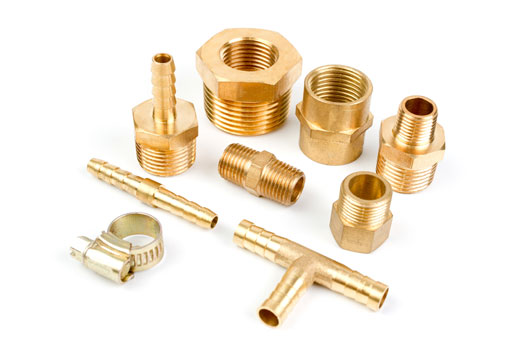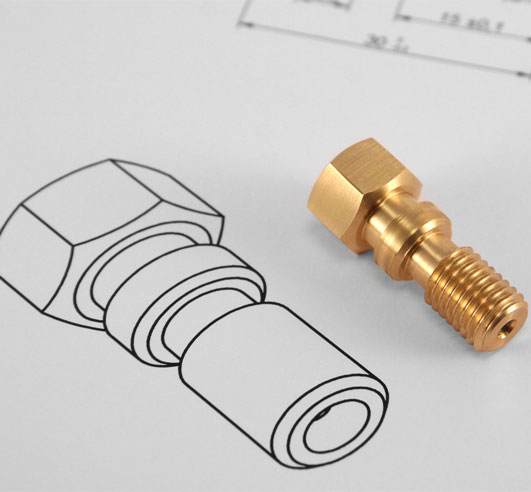Brass components have made their mark in various industries due to their durability, resilience, and malleability that allows for them to be finely crafted into durable industrial parts. The advent of CNC machining technology has introduced high-level precision and consistency in developing brass parts for various applications. Some notable industries capitalize on these CNC machined brass parts, such as automotive, electrical, plumbing, and many others. This article will explore the compelling journey from a brass workpiece to a finely tuned industrial component.
Brass: The Backbone of Many Industries
Brass is an alloy primarily consisting of copper and zinc, though other elements may be added to enhance specific properties. It offers high heat and electrical conductivity, corrosion resistance, and excellent machinability, making it a preferred choice for numerous industries.
CNC machining allows for an unparalleled level of preciseness, efficiency, and repeatability in the production of brass parts. As such, it provides an approach to brass machining that optimizes all the inherent advantages of this resourceful alloy.
Transforming Brass via CNC Machining
The machining process for brass begins with CNC programmers carefully developing a machining program based on CAD models of the desired brass part. This machining program instructs the CNC machine on how to rework the raw brass material into the intended component.
In the scribing process, the CNC machine progressively wears off the brass workpiece layer by layer. A wide array of operations such as milling, turning, cutting, drilling etc., can be carried out by changing the suitable cutting tools.
Apart from shaping, other tasks such as threading, knurling, and even engraving can be accomplished with high precision, meeting all the specific requirements of the brass component's design.
Assuring Quality in CNC Machined Brass Parts
Quality assurance is paramount in CNC machined brass parts production. Various quality control methods are employed to ensure that the final product meets the required specifications and is free from defects. Real-time monitoring during the machining process can identify any deviations from the plan and enable timely interventions.
Post-production, the machined parts undergo rigorous checks using coordinate measuring machines (CMM) and visual inspections. These procedures verify the physical and dimensional aspects of these parts, aligning them with the pre-set tolerances.
Economical Efficiency of CNC Machined Brass Parts
From an economical standpoint, CNC machined brass parts provide considerable savings for manufacturers. Given the high degree of automation in CNC machining, one can produce large volumes of parts with consistent quality. Also, brass being a cost-effective material and the possibility of lower waste generation thanks to the precision of CNC machining, further add to the manufacturing cost-effectiveness.
The Environmental Aspect
To foster sustainability, brass chips that are a byproduct of the CNC machining process are collected and recycled, thereby reducing waste. Moreover, brass's inherent recyclability adds an extra layer of environmental friendliness to CNC machined brass parts.
In essence, CNC machined brass parts serve as a cornerstone in multiple industries, given their remarkable robustness, precision, and cost-effectiveness. As the CNC technology continues to evolve and become more sophisticated, one can only anticipate an increasing dominance of these invaluable industrial components. Whether you are delving into the manufacturing future or attempting to underpin your current production requirements, CNC machined brass parts indeed offer a profound gateway.
cnc machined brass parts quotes







